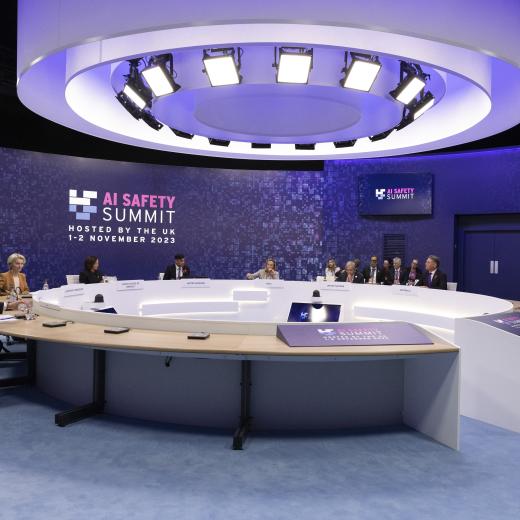BLUF
Difficult conversations in the workplace are essential to good leadership and effective management.Summary
Having difficult conversations in the workplace.
- Difficult conversations are crucial in the workplace.
- Sensitivity and respect are key to having effective conversations.
- Planning and preparation are essential.
- Active listening is important.
- Effective communication is necessary.
- Difficult conversations present an opportunity for growth and development.
- They can lead to positive change and strengthen relationships.
- Organizations can provide training and support.
- A culture of open communication can make conversations easier.
- Handling difficult conversations effectively helps to maintain a positive work environment.
DIFFICULT CONVERSATIONS
APR 2015 Why Every Military Leadership Course Should Include A Lesson On Difficult Conversations - Task & Purpose (taskandpurpose.com)
Task and Purpose - Media Bias/Fact Check (mediabiasfactcheck.com) MBFC Credibility Rating: HIGH CREDIBILITY
- Difficult conversations become easier when we shift our mindset from telling to learning.
- Difficult conversations are opportunities to gain perspective and understand.
- Difficult conversations help us manage problems going forward.
- Difficult conversations become opportunities to connect with others.
- Anxiety, fear, dread, anger, and self-doubt are emotions attached to difficult conversations.
- The main idea to have a learning conversation is to shift our mindset from having a difficult conversation.
- We should focus on asking questions to listen, understand, and acknowledge the other person's point of view.
- Hard conversations become more fruitful if we shift our mindsets as leaders.
- When we have a learning mindset, we connect with others.
- Connection is an incredibly powerful tool for leaders.
Jan 2015 How to Handle Difficult Conversations at Work (hbr.org)
Harvard Business Review - Media Bias/Fact Check (mediabiasfactcheck.com) MBFC Credibility Rating: HIGH CREDIBILITY
Major Points:
- Change your mindset and frame the conversation positively to view it as constructive and not negative.
- Take regular breaks and practice mindful breathing to stay calm and centered.
- Plan what you want to say with notes and key points, but don't script the conversation as it needs to be flexible.
- Acknowledge your counterpart's perspective, show that you care and express your interest in understanding how the other person feels.
- Be compassionate, and come from a place of empathy, but don't emote and don't play the victim.
- Slow down and listen, and defuse negative emotions by slowing your pace and pausing before responding.
- Give something back if possible, such as a strong recommendation or alternative options.
Sep 2021 How to Make Difficult Conversations at Work Meaningful and Effective - Inc. Australia (inc-aus.com)
Inc. Magazine - Media Bias/Fact Check (mediabiasfactcheck.com) MBFC Credibility Rating: HIGH CREDIBILITY
Major Points:
- Build confidence by trusting yourself and the other party.
- Find clarity by making your point clearly and listening.
- Demonstrate compassion by being empathetic and understanding.
- Demonstrate curiosity by asking questions rather than shutting down.
- Find compromise and earn respect by respecting others.
- Show credibility, as your word is only as good as your actions.
- Display courage by navigating the obstacles despite fear.
- Solidify your purpose at work to build confidence.
- Practice your message ahead of time to make your point clear.
- Seek common ground and aim for a "win-win" outcome.
Oct 2021 How To Handle Difficult Conversations At Work (forbes.com)
Forbes - Media Bias/Fact Check (mediabiasfactcheck.com) MBFC Credibility Rating: HIGH CREDIBILITY
- Major Points:
- Don't wait to have difficult conversations at work.
- Change your mindset and approach it as a normal office conversation.
- Practice having difficult conversations regularly.
- Prepare for the conversation beforehand.
- Manage your emotions and keep a professional tone.
- Be empathetic and give the other person time to process their emotions.
- Clearly explain why you're having the conversation.
- Brainstorm together to find a solution.
- Listen to the other person's thoughts and bring suggestions to the table.
- Make sure there is an action plan in place moving forward.
Aug 2022 How to Have Difficult Conversations with Employees (hbs.edu) How to Have Difficult Conversations with Employees (hbs.edu)
Harvard Business Review - Media Bias/Fact Check (mediabiasfactcheck.com) MBFC Credibility Rating: HIGH CREDIBILITY
Major Points:
- Over 80% of employees avoid hard conversations at work, which can lead to resentment and disengagement in the team.
- Building trust with employees helps make hard conversations easier.
- Difficult conversations can be divided into three layers: what happened, how we feel about what happened, and how the incident threatens each person's identity.
- Actively listening and understanding where the other person is coming from is crucial during hard conversations.
- Speaking in specifics and focusing on facts and examples can help avoid personal biases creeping into the conversation.
- Brainstorming solutions together can lead to a better understanding and stronger solutions to the problem.
- Avoiding hard conversations can make them even more difficult in the long run.
- Emotional intelligence and projecting warmth and competence can help build trust and understanding with employees.
- Acknowledging your role in the situation can create a safe space for the other person to share their perspective.
- Avoiding judgment and focusing on finding common ground can make hard conversations more productive.
3 ways leaders can better prepare for difficult workplace talks (fastcompany.com)
Fast Company Magazine - Media Bias/Fact Check (mediabiasfactcheck.com) MBFC Credibility Rating: HIGH CREDIBILITY
Major Points:
Here are ten short bullet points on three ways leaders can better prepare for difficult workplace talks:
- Be present and welcome hard conversations.
- Enact radical preparation by building foundational “Home Base” points and anticipating potential questions.
- Take extreme ownership by using “I” statements to express feelings and perspectives.
- Foster an atmosphere for constructive discourse to create a space that is psychologically safe and empowers each person to openly debate ideas.
- Embrace technology to meaningfully augment expertise in handling difficult times.
- Use AI tools like Queue.ai to identify high-value questions and OpenAI's ChatGPT to formulate thoughts and create difficult questions for “Red Line” drills.
- Microsoft’s integration of ChatGPT into their Office suite will foster a more seamless workflow to rapidly generate content.
- Leadership teams should ultimately be responsible for the final curation and dispatch of information.
- Difficult conversations emphasize the need for both preparation and understanding.
- Being genuine, relatable, trustworthy, and authentic is essential when delivering information during challenging situations.
References





